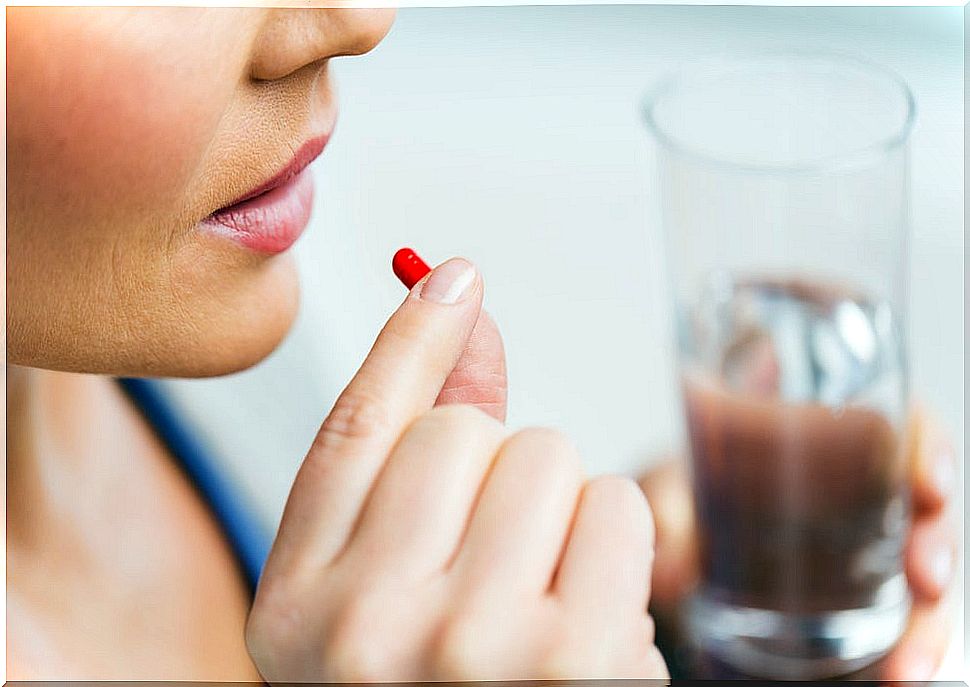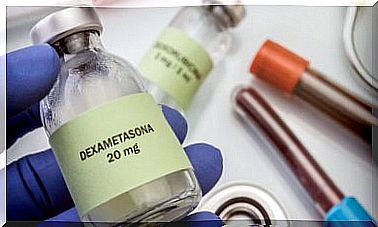Why Is It Not Good To Mix Antibiotics And Alcohol?
Mixing antibiotics and alcohol is an act that is never recommended due to the effects that can be generated in the body. The main reason is the adverse effect or decrease in the effectiveness of the antibiotic that alcohol can cause. Or, on the contrary, the fact that the effect of the antibiotic is enhanced due to it.
However, it is important to bear in mind that not all antibiotics act the same, so not all have the same effects on the body when mixed with alcohol.
In fact, moderate and casual amounts of alcohol generally do not interfere with the effect of most antibiotics. The problem, in these cases, are the side effects and the action of alcohol on the immune system.
Here we explain what effects are produced in the human body by mixing antibiotics and alcohol. As well as the different types of antibiotics in which alcohol can be especially harmful.
Effects of mixing antibiotics and alcohol

As mentioned above, one of the negative results that occurs when mixing alcohol with antibiotics is to enhance the adverse effects of the drugs themselves.
This is because some antibiotics, such as amoxicillin, often have side effects such as nausea, vomiting, or diarrhea. Alcohol is a very irritating substance for the gastrointestinal mucosa, and it is very likely that it potentiates these adverse effects.
Likewise, another problem is the fact that people who are being treated with antibiotics are those who suffer from an infection. This means that they need a competent immune system to fight it. Alcohol can impair the action of the immune system, making it difficult to heal.
Also, alcohol is metabolized in the liver by the same enzymatic pathways that some of the antibiotics metabolize. This causes the liver to work by processing alcohol, so that the antibiotic is not properly metabolized. The final effects are not only the reduction of the action of the antibiotics. Also the accumulation of toxic metabolites of the same, increasing the incidence of side effects.
Antibiotics with which alcohol should never be mixed
There are also certain antibiotics that, mixed with alcohol, can cause really harmful effects. In the most severe cases, the mixture of antibiotics and alcohol can lead to the disulfiram effect, which we will explain later. Antibiotics that cause the disulfiram effect:
- Metronidazole. This antibiotic and antiparasitic is commonly used to treat infections and some gastroenteritis among other diseases.
- Tinidazole It is an antibiotic and antiparasitic, like Metronidazole, which should not be mixed with alcohol.
When mixing alcohol with these antibiotics, the patient will suffer one or more of the symptoms of the disulfiram effect. In addition, it is important to bear in mind that you not only have to avoid drinking alcohol while you are being treated with these antibiotics but also when you finish it.
Alcohol should not be consumed until 48 hours after you stop taking Metronidazole. Likewise, you will have to wait 72 hours after stopping Tinidazole.
What is the disulfiram effect

Formally known as Antabuse, disulfiram is a product that is used in the treatment of alcoholism. Disulfiram prevents the liver from metabolizing the more toxic metabolites of alcohol. In this way, alcohol is up to 10 times more toxic to the body.
Thus, the patient quickly becomes intoxicated with the minimum dose of ingested alcohol, immediately feeling the side effects. These are, vomiting, drop in blood pressure or palpitations among others. It is these same effects that the patient who consumes alcohol mixed with the antibiotics mentioned above will feel. Specifically, the results are as follows:
- Redness of the skin.
- Deep sweating
- Nausea and vomiting
- Tachycardia and dizziness.
- Headache or headache.
- Difficulty breathing.
- Chest pain
In addition, on certain occasions, the patient has also experienced vertigo, high blood pressure, and syncope. The population most at risk are people over 65 years of age, due to the fact that they are more sensitive to the effects of alcohol. Likewise, so are those patients who take a chronic medication.
In conclusion, it is never advisable to mix alcohol and antibiotics. Although the effects are not always going to be so negative, the mixture will never be good for the user.









